ExhibitingCompanies
LEBANON AGRI-FOOD INNOVATION DAY 2019 · FEBRUARY 5 · BEIRUT · BIEL
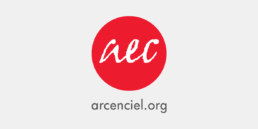
ARCENCIEL
Did you know?
There are locally produced bio-pesticides are environmentally friendly, sustainable and a cost-effective alternative to chemical pesticides?
What’s the innovation?
Arcenciel’s agricultural program, in cooperation with the faculty of Sciences within St. Joseph’s University, have succeeded in developing Lebanon’s first bio-pesticide. Arcenciel’s bio-pesticide contains crystal proteins of the local strain of bacteria Bacillus thuringiensis which targets larva belonging to the family of Lepidoptera sp. The lepidoptera, in high numbers, wreak havocon a wide range of crops such as grapes, olives, tomatoes, apples and pine trees and are a growing threat to the Lebanese eco-system, threatening Cedars. The product works by triggering crystals toxicity under specific pH conditions and enzymes activity within the insect’s intestine, blocking its digestive system receptors leading to cellular death. This process makes this product safe to humans, microorganisms, animals or other non-targeted and beneficial insects.
What’s the story behind the innovation?
EU standards and organic certifications requires the farmer to abstain from using chemicals for crops to a certain extent; however due to tainted natural resources, climate change and rise in pests and diseases, farmers find themselves having to use an increasing amount of chemical amendments.
While organic alternatives exist and are sometimes available, they are currently not a feasible option due to their costly nature, short shelf-life and inconsistent effectiveness. As such, arcenciel and USJ worked hand in hand to create an affordable, effective and safe solution to all these issues.Who is it benefitting?
Switching from chemical to organic pesticides helps protect the environment, biodiversity, the farmers and local communities. In addition, the bio-pesticide acts as a revenue generating amendment, as it allows farmers to protect their crops while remaining eligible for export to foreign countries.
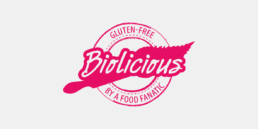
BIOLICIOUS
Did you know?
There are locally produced crackers made of dehydrated vegetables and soaked seeds as well as locally produced kale chips?
What is the innovation?
Biolicious offers a range of certified organic, wholesome and gluten free food packed with nutrients and flavor.
The ingredients used in Biolicious and the way they’re combined (the healthy offering) as well the profile of the product itself are all innovative. For example, Biolicious crackers are made of 80 percent vegetables and soaked seeds; kale chips were adopted to local taste using local flavors like tahini, sumac and pomegranate molasses.
Biolicious commercialized and modernized traditional ways of preparing food (such as soaking seeds).
What’s the story behind the innovation?
Reema Mansour, the founder of Biolicious, had a health need and so had to stick to a restrictive diet. She found very little foods available in the market that would meet her needs at the time (almost four years ago) – and what she did find were either tasteless or prohibitively expensive.
She therefore started to personally experiment with food products, specifically snacks, that she could enjoy while not violating her diet restrictions. The products she was making became very interesting to her friends and family and other people in the organic and healthy world and she was encouraged by them to offer her products commercially.
This led to her taking a course in nutrition therapy and developing Biolicious, an organic-certified, ultra-healthy and natural gluten-free line of snack products with creative and delicious tastes.Why is it important?
Born out of her own dietary needs, Reema identified a market need for healthy, natural and tasty snacks.
More and more alternative approaches to healthy living are popping up: a growing number of people are going back to the basics and looking inwards at what they put in their body and how it makes them feel- there is an emerging holistic approach to health and wellness.
At the same time, mechanisms for testing food allergies and intolerances have become more accessible and people can identify if they have celiac disease or lactic intolerance for example. This made consumers more specific with their dietary needs and preferences. As such demand for products such as Biolicious is on an increasing trajectory.
Biolicious products have also been adapted to local tastes such as carrot and thyme crackers or figs and roses energy clusters.Who does it benefit?
Biolicious offers innovative tasting products across a wide range of flavors meaning those who are on strict dietary restrictions have a wide variety of tasty snacks to choose from. Parents can give their children healthy, natural and most importantly tasty snacks to take to school. Athletes and fitness enthusiasts can now choose from a line of all natural and sugar free products for energy boosting.
The products abide by fourteen free-from rules making them a perfect match for people experiencing multiple intolerances or health issues related to food intake.
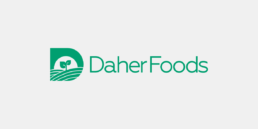
DAHER FOODS
Did you know?
There is a nature and healthier option to the color and flavor additives typically used in potato chips?
What is the innovation?
Sunset yellow is the common name of a synthetic azo dye commonly used to color and flavor potato chips and crackers.
Daher Foods have replaced sunset yellow in their paprika and cheese lines of chips with natural products called paprika extract and Carmine (both of which produce red colors).
While they are more expensive that sunset yellow, Daher Foods believes it’s worth the extra cost.
What is the story behind the innovation?
Consuming sunset yellow has been linked with hyperactivity among children and with cancer risk in the long term. It is known to have adverse reactions on the brain and on children’s attention span.
Motivated by its social responsibility and its dedication to provide only the healthiest and safest options for its young consumers, Daher Foods was searching for an alternative to sunset yellow that would retain the color minus the harmful effects.Why is it important?
A large percentage of Daher Foods’ consumers are children and as such, replacing artificial sunset yellow with a natural product is not only healthier for them but also decreases their risk of hyperactivity.
This innovation also helps Daher Foods build trust with their consumers by committing to their children’s health by using natural products only.
Daher Foods is trying to be a role model for other companies by accepting the extra cost on themselves in order to benefit their consumers. Natural color can have the same color impact on the product. The consumer will enjoy the same product taste and color but without any of the negative side effects.Who does it benefit?
Daher Foods benefits in reflecting an image of its commitment to natural products regardless of the cost. The consumer benefits from a more natural and ultimately healthier product.
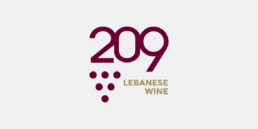
209 LEBANESE WINE
Did you know?
Almost all Lebanese wines (from 65 wineries in the country), including hard to find vintages of established wineries, have been gathered for sale under one virtual roof?
What’s the innovation?
209 Lebanese Wine is Lebanon’s first one-stop online shop for locally produced wines and spirits (gin, vodka and arak) where users can order bottles online and have them delivered to their doorstep. The platform includes the vast majority of Lebanese wines ranging from small producers who may have limited distribution to large wineries who sometimes want to make their older vintages more accessible. 209 Lebanese Wine acts as an online sommelier giving users guidance on wine pairings and wines to match their taste or budget to name some examples. The wines are mainly distributed locally but a collection of them have begun their international journey.
What’s the story behind the innovation?
209 Lebanese Wine’s story started when its founder Selim Yasmine identified a gap in the accessibility of most Lebanese wines. While common vintages of well-known wineries were readily found in supermarkets, more elusive vintages of these wines and wines from small and medium wineries were difficult to source. As such 209 offered a solution to this market need.Why is this important?
Through 209, wine lovers have the choice of Lebanese wines or vintages which are not commonly found in supermarkets or even in delicatessen thereby widening consumers’ education and access to locally produced wine. Being able to purchase wine online and have it delivered to one’s home is also more convenient to consumers who may not have easily accessible wine shops. From the perspective of wine producers, 209 is important in that it widens their market scope allowing them to reach new customers who discover them through the platform. This is especially important for small to medium producers who may not have a big budget for marketing and promotion.Who is it benefitting?
209 Lebanese Wine has a positive impact on the community in that the ecosystem behind the production of wine benefits with the success of the platform. When more bottles of Lebanese wine are sold on 209, everyone from grape growers to those who harvest the grapes to those who are employed by the wineries for back office work and finally to the wine producers themselves, benefit from an increase in productivity and business.
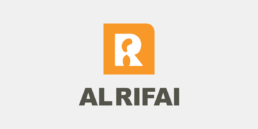
AL RIFAI
Did you know?
Al Rifai can trace back and forward every aspect of their production including where the salt used on their peanuts came from?
What is the innovation?
Al Rifai has implemented a firm traceability system starting with the reception of the raw materials and until the distribution of the end products. At each stage of the production process, a lot number is assigned to the processed goods. Delegated personnel are responsible for carrying out the different traceability tasks including ensuring the right system implementation in the processing area or keeping track of related records in Al Rifai’s ERP system.
What’s the story behind the innovation?
To ensure the highest product quality and food safety, Al Rifai has an extensive quality assurance and food safety program covering the whole value chain. In compliance with regulatory requirements and the highest standards, Al Rifai’s has implemented a firm food safety management system to control and eliminate all hazards that can be faced during process. Al Rifai is certified according to internationally recognized food safety standards: HACCP and ISO 22000 certified since 2008 and ISO 22005 certified in 2015 for the requirements of traceability in the food chain. Indeed, Al Rifai demands 100 percent traceability on all their products and use scientific-based risk identification to prevent or eliminate potential adverse impacts. Al Rifai added on the IFS standard in 2016 and the AIB requirements in 2019.Why is it important?
In the event of a food borne accident or food safety non-conformance, the traceability system enables the tracing back through the food chain process, promptly and easily, in searching for its cause. If monitoring data regarding food safety is in place, the investigation for the cause of the problem should become easier. Also, in order to withdraw and recall problem foods in an accurate and prompt way, the traceability system can narrow down the search for the said foods as well as identify their destination. The system also helps to clarify responsibilities of food business operators.Who does it benefit?
It helps build the trust of end consumers who can enjoy Al Rifai with the assurance that it is safe and of high quality which can be verified if needed.
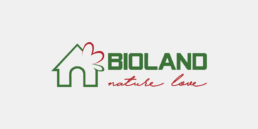
BIOLAND
Did you know?
A wide range of organic products are now produced in Lebanon using 90 percent local resources?
What is the innovation?
Bioland produces organic fruits and vegetables, cow and goat dairy products (organic goat dairy products are seasonal), meats and chickens, dried fruits and nuts, honey, olive oil and mooneh products and essential oils. Since eating organic is still niche in Lebanon and perceived as only for the wealthy because of its higher than conventional agriculture price tag, Bioland is trying to do two things. It is trying to make organic products affordable for everyone in Lebanon, especially for fruits and vegetables where the cost of production is close to conventional agriculture (the extra price for organic is in the certificate and in the risk of having to throw away all the crop if there is a diseased product since antibiotics cannot be used on organic produce). Bioland has established, over the years, three distillation sites in Lebanon which use steam technology, the newest technique to get the best yield and oil quality. Bioland has developed exclusive contracts with farmers for raw material production and with global companies for final product selling.
What is the story behind the innovation?
Bioland started in 2009 as a small family owned production whereby the owner planted organic fruits and vegetables for himself and his family and friends. The land produced an abundance of produce and at the same time Bioland identified a demand for affordable organic produce in Lebanon. It therefore began slowly expanding its business acquiring more land across Lebanon using permaculture methods and adding products such as meats, nuts, dairy and essential oils in response to market demand and need. Bioland operates its own stores (both in Achrafieh) and is available in specialized organic goods stores.Why is it important?
Eating organic is very important to one’s health especially for children as it reduces risks of diseases and food has more nutrients. Being in the organic system provides full product traceability to the producer and consumer.Who is it benefitting?
Anyone who cares about their health or their children’s health benefits from eating organic. Bioland is also supporting the local ecosystem through working with local farmers on producing organic products.
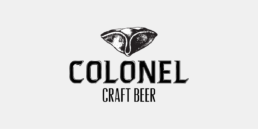
COLONEL BEER
Did you know?
You can buy two liter refillable jugs of fresh beer to enjoy at your next house party?
What is the innovation?
Colonel began selling growlers- meaning two-liter glass gallons of beer filled up fresh- a year and a half at their brewery in Batroun. The beer in the growler lasts for two weeks. Once consumers are done with the beer, they bring the jug back and refill it from the brewery itself or any pub that sells Colonel draft beer.
What’s the story behind the innovation?
Jamil Haddad, founder of Colonel, is a lover of nature and was always thinking of ways to protect and preserve the natural environment in Lebanon. He believes all Lebanese should think in an ecofriendly and sustainable way. A year and a half ago, local beer breweries were producing very small bottles of beer as a sort of novelty item which Jamil found wasteful. This triggered him to think of doing the opposite, which is launching growlers which fit two liters of beer.Why is it important?
Growlers are environmentally friendly for several reasons. Since Colonel’s growlers are refillable, consumers can buy them only one time instead of having to buy a new one every time. Since one growler contains two liters of beer, it replaces buying almost eight individual bottles of beer at a time. Also with a growler usage of materials such as the label or the bottle cap-which typically end up being thrown away instead of recycled- is eliminated. Growlers are also cost efficient in that consumers pay for the jug once and then pay a small amount for every refill (less than they would have paid for the same amount of beer in a bottle).Who does it benefit?
Jamil says the growler is very popular among his customers. As more and more consumers opt for this option when purchasing beer, waste decreases and so does unnecessary consumption of bottles, caps and labels. Lebanon’s natural environment is thus the ultimate beneficiary.
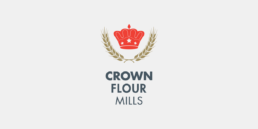
CROWN FLOUR MILLS
Did you know?
You can enjoy a gluten free version of the double layered pita bread that is a staple of the Lebanese (and the region’s) diet?
What’s the innovation?
Crown Flour Mills produces standard pita bread mixes but recently developed a mix for double layer gluten free bread and a double layer low glycemic index (low GI) bread mix ideal for those with diabetes.
What’s the story behind the innovation?
As producers of flour mixes for breads, management of Crown Flour Mills attends a number of international exhibitions in their field. Around four years ago, they identified a health conscious trend manifested, among other aspects, in a demand for gluten free breads and breads with low glycemic index.
At that time, there was also a need for gluten free and low GI breads that cater to diabetics in Lebanon but a limited number of products were meeting that demand (and they were often imported and expensive). There was also no gluten free double layer pita bread although this type of bread is the most commonly enjoyed in the Middle East. As such, Crown Flour Mills recognized a market opportunity in producing mixes for double layer gluten free bread-almost identical in taste and texture to the standard pita bread. They also identified an opportunity in developing mixes for low GI pita bread.
It took Crown Flour Mills four years of Research and Development to come up with the mixes for the gluten free and low GI breads which they launched in 2018.Why is it important?
Cases of type two diabetes are becoming more common and as such low GI pita bread helps diabetics maintain a low glycemic index diet while still getting to enjoy the pita bread they are used to.
Although a limited number of people have Celiac disease or are gluten intolerant, many prefer gluten free bread as it makes them feel less bloated. Again, giving them a double layer pita bread option allows preserve their food preferences while maintaining the health conscious lifestyle they demand.Who is it benefitting?
The end consumer is being able to enjoy a healthier lifestyle while maintaining food habits.
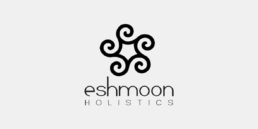
ESHMOON
Did you know?
There is a healthier, tastier way to enjoy chocolate aaand it’s locally produced with fruit molasses from our villages.
What’s the innovation?
Many aspects of Eshmoon are innovative and can be summed up with coming back to our local roots in order to express their unique local identity. Eshmoon’s philosophy and mindset of being true to themselves is innovative and drives their solutions. The name itself is innovative in that Eshmoon is the god of healing in Canaanite mythology which is the mythology of our region. Eshmoon uses local products such as carob molasses to sweeten their chocolates and desserts. The logo itself is a reflection of their identity and is unique in that it combines five elements of nature (air, fire, minerals, water and wood).
What’s the story behind the innovation?
Samer Tutunji, a chemist and yogi, was driven by the holistic health philosophy promoted by yoga to start Eshmoon. He originally wanted to produce organic cosmetics but felt the Lebanese market was not ready for that and decided to start with food- starting with the most loved food product: chocolate.Why is it important?
It provides a healthier alternative to chocolates and desserts by using natural alternatives to sugar, and by being gluten free and organic. This is therefore ideal for children, for those with diabetes and for those who simply want to consume tasty and healthy combined.Who is it benefitting?
Eshmoon packaging is reusable or recyclable and thus is environmentally friendly. Eshmoon is socially responsible in that it hires from the rural community and the underprivileged and is involved in community service. Eshmoon uses clean and natural ingredient so the end consumer’s health is benefitting.
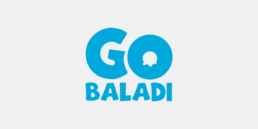
GO BALADI
Did you know?
An organic line of goat dairy products is produced from the local goats you see on your trips to Lebanon’s remote rural areas?
What is the innovation?
GoBaladi produces a conventional and a certified organic goat dairy products range (including local essentials such as laban, soft labneh, halloum, double crème and milk) made from local goats’ milk. Working with local goats to produce a diverse line of dairy products had never been done before and came with challenges but GoBaladi persevered because they believed in a sustainable ecosystem. For example, local goats only produce milk from March to September and so GoBaladi got techniques which are applied on European goats to make them produce milk yearlong and applied them to the local goats used for the conventional line (it is against the regulations of the organic certifications to interfere with the goats’ habits).
GoBaladi also worked the local goat farmers- who are mainly uneducated and with little resources-on best hygienic practices and on how to increase the yield and improve the quality of milk in natural way.
Contrary to industrial farmed goats (which stay inside the farm all the time), GoBaladi’s local goats are for the most part free range meaning they roam the pristine hills on GoBaladi’s land in Mount Sannine and feed on the grass there (in the organic line, the goats are 100 percent grass fed while in the conventional it is 60 percent grass fed and 40 percent feed).
What’s the story behind the innovation?
GoBaladi started producing organic labneh balls with oil- the traditional goat dairy product- since local goats are by nature free range (feed on grass all day) they were conducive to such a project. They then got a lot requests to expand on their organic and local goat dairy products line and so they identified a market need for goat products in general, and for organic goat products specifically.Why is it important?
Goat dairy products are healthier than cow dairy products that tend to be mass produced and have additives. Those with a lactic intolerance can safely consume goat products. There is a growing demand for organic products in the Middle East as health conscious consumers increase and GoBaladi is the only organic dairy producer in the Middle East.Who is it benefitting?
GoBaladi is giving farmers in rural areas consistent economic opportunities and introducing them to technology to improve their production and the quality of their milk. Through yearlong breeding these farmers can now make money in the winter as well.
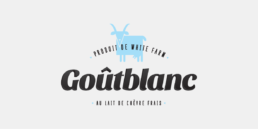
GOUT BLANC
Did you know?
You can have Lebanese produced French style goat cheese?
What is the innovation?
Gout Blanc introduced two types of European goat breeds into Lebanon: the Saanen and the Alpine.
These types of goats give 1,000 liters of milk per lactation and produce milk for ten months of the year; they only rest for the last two months of their pregnancy. So what Gout Blanc did is separate the goats into main groups and control their breeding so when one group is pregnant the other is producing milk and vice versa.
Through this way Gout Blanc had yearlong access to fresh goats’ milk and so could produce fresh goat dairy products such as spreadable labneh (they were the first to introduce it to Lebanon) and halloum. They were also the first to produce French goat cheese in Lebanon. Gout Blanch started with 60 goats in 2006 and through trial and error in learning how to take care of them, today they are at 1,250 goats with the aim of reaching 3,000 goats soon.
What’s the story behind the innovation?
Gout Blanc wanted to produce large quantities of fresh goat dairy products throughout the year. Although the local Baladi goats are strong and produce high quality milk, its production is limited to 120 liters per lactation and they only give milk 150 days of the year from May and until September- so they were not conducive to Gout Blanc’s goal. To resolve this challenge, Gout Blanc introduced Alpine and Saanen breeds of European goats into Lebanon.Why is it important?
Goat dairy products are healthier than their cow counterparts. They are easier to digest and are higher in vitamin, calcium and phosphorous.
Goat protein and fat content and composition are different from those of cows and as such those with an intolerance to dairy from cows milk would find a good alternative in goat dairy products- and there are many such cases in the Middle East.
When it comes to French style goat cheese, having a locally produced version with no additives or preservatives and which can reach the consumer within three days of its production is healthier and more time efficient (especially for the hospitality business).What is the benefit?
Consumers are getting fresh goat dairy products all year long.
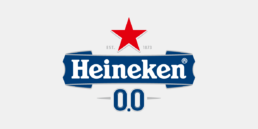
HEINEKEN
Did you know?
You are now able to sip premium beer with zero alcohol content and less than half the calories of an alcoholic premium beer? Heineken 0.0 in Lebanon is the biggest and most impactful product launch that Heineken has seen in decades. With Heineken’s 0.0 we have the world’s first great-tasting, premium, zero percent alcohol beer.
What is the innovation?
Heineken released into the Lebanese market, in mid-January 2019, Heineken 0.0%, a non-alcoholic version of the internationally acclaimed all natural and premium beer. It took Heineken’s research and development team many years to come up with a non-alcoholic brew that would retain the same refreshing taste of the alcoholic version of Heineken. Today, Heineken 0.0% tastes different to regular Heineken. However, it has the same characteristic fruity notes, but with a soft malty body.
Heineken is the first beer brewery in the world to release a non-alcoholic premium beer. While there are beverages that promote themselves as non-alcoholic beer, they are in fact simply malt beverages.
What’s the story behind the innovation?
The nonalcoholic beverages category is a fast growing one, especially in today’s world where consumers are more health conscious and prefer to cut down on calories that come from alcohol consumption. Heineken realized that there was no premium beer within the nonalcoholic beverages segment and so identified a need for an alcohol free beer. Heineken believes there is a strong market opportunity in Lebanon for such a product.Why is it important?
Through Heineken 0.0% Now You Can campaign, Heineken answers the needs of many types of consumers and sheds light on the different and infinite occasions and reasons to have a 0.0. Consumers can now have a Heineken 0.0 before driving home, after the morning run, post-workout, to survive traffic, to have a party at work, to feel guilt-free with only 52 calories, on campus, anywhere, just before class, during study group, before a big presentation, while pulling an all-nighter, during detox week, to create their own happy hour etc…What is its impact on the community?
Heineken 0.0 will have a positive impact on society in that Heineken identified a market need in its community and is responding to that need with a great tasting product.
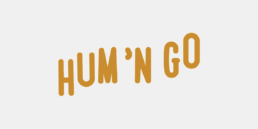
HUM’N GO
Did you know?
You can enjoy humus while walking on the corniche, watching a movie in the cinema or driving your car without making any mess?
What is the innovation?
Hum’N Go transformed a traditional plate, humus, into a healthy grab n go snack. Capitalizing on the trends of grab n go and healthy snacking, the product cup includes brown breadsticks on one side and humus in different flavors on the other side. Hum’N Go currently comes in two flavors: the original and humus with pomegranate molasses- the latter of which is proving to be a big success in the market. Two flavors are currently under development.
Hum’N Go was able to increase the shelf life of humus from the standard 20 days to four months while remaining within EU standards (using temperature and pressure instead of preservatives) which is a major asset for the export market.
What’s the story behind the innovation?
The founders of Hum’ N Go originally started their business with a catering line called Mummy Made six years ago (which they later rebranded into M Social Catering). Because of this business, one of the founders, Samer, was attending a seminar in Italy for social entrepreneurs and was asked to present one product which includes an innovation. So he made kaak boats with humus.
The response from the attendees was very positive and this gave Samer the idea to build on humus’s success with a model that can be scalable.Why is this important?
Humus is known to be a healthy food.
There is a significant growth in the global humus market. It is becoming a worldwide trend with humus popping up in hundreds of restaurant menu and on supermarket shelves across the globe.
The grab n go market is growing more than 20 percent year on year. This is because in today’s fast paced world, people don’t have time to sit down and eat anymore and prefer to grab their food on the go.
For all these reasons, Hum’N Go identified a market opportunity for grab and go humus and worked on realizing that.Who does it benefit?
The founders of Hum’N Go have a separate organization called ProAbled specialized in training and finding jobs for people with physical disabilities and people with acute financial challenges. The majority of profits that the founders will be generating from Hum’N Go are going to be used to support ProAbled. Some of the employees of Hum’N Go are people with physical disabilities.
The consumer benefits from having local and beloved healthy snack products.
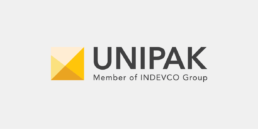
UNIPAK
Did you know?
UNIPAK provides one-stop paper-based packaging solutions that enhance the business value of any company across any industry, ranging from a display stand to a shipping tray or a creative promotional box
What is the innovation?
UNIPAK has shifted from being simply a box producer to also becoming a packaging consultant working with its customers on optimized solutions for their packaging needs.
A new platform has been set in place to offer customers the ability to manage their packaging supply chain activities from the comfort of their desks. Through this platform, customers can benefit from consultancy on their packaging problems, receive solutions using the lasted 3D design tools, and place and track their orders online.
What’s the story behind the innovation?
UNIPAK recognized that their customers’ businesses are evolving at a rapid pace. Their customers, with an ever-increasing exposure to the global market, have to meet international standards and regulations, and keep up with the global competition, while being time and cost efficient. As such, they are becoming more demanding and have complex packaging requirements.
For UNIPAK to stay ahead of the curve, they took the decision to keep on reinventing themselves to remain competitive in the market by becoming a one-stop shop for all paper- based packaging needs.Why is it important?
UNIPAK’s innovative business model is cost and time efficient on various levels. UNIPAK will act as a packaging consultant and packaging manufacturer, allowing customers to deal with one supplier for all their paper-based packaging needs.
In addition, customers no longer need to rely on UNIPAK sales team visits to place their orders or request packaging solutions, since they can easily use the online platform to do so thereby speeding up their business cycle and undertaking more transactions, with fewer paperwork and higher automated operation.Who is it benefitting?
UNIPAK customers are benefiting from this business model as they reduce their supply chain complexity and improve their efficiencies, which is translated into financial benefits; in addition, the consumer is indirectly benefiting from the reduced environmental impact of packaging material.
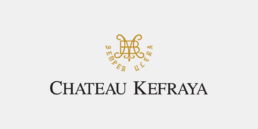
KEFRAYA
Did you know?
Although Chateau Kefraya’s 300 hectares of vines are located in one single land (West Bekaa), it still contains no less than 13 different soil types? And that every soil-type gives to wine a different expression?
What is the innovation?
Chateau Kefraya undertook a comprehensive study over all its Land, using technology to better understand it. They began by using ‘’drone technology’’ to obtain a top view of their vineyards, allowing them to identify, through the different shades of colors, which zones of parcels have a similar soil type.
They then took samples from each zone to analyze the soils’ typography, with the help of a specialist in Pedology.
After a better understanding of its vineyards Chateau Kefraya moved to the ‘’micro-climate’’ study. For that step, they attached sensors to each grapevines’ zone to understand the impact of the micro-climate parameters on it: meaning humidity, water, temperature and soil moisture on the grapes; a set of information used for the sake of the quality of wine that will be later produced.
Chateau Kefraya is leading wine innovation in Lebanon. it was one of the worldwide pioneers to use this technology on wine and the first to use it in Lebanon.
What’s the story behind the innovation?
Chateau Kefraya believes that any winery should know its terroir better to improve wine quality. While they knew – to a certain extent and through experience – what vine zone was the best for each wine, they needed to confirm it and understand the scientific reasons behind it.
Chateau Kefraya started the study in 2014 with Cabernet Sauvignon grapes, planted on 8 different soils and submitted to different microclimates. Then, they decided to repeat the same process for the whole land. In 2017, they even introduced the drone technology and the ‘’Internet of Things’’ (IoT), to obtain more accurate results.Why is it important?
Such scientific knowledge enables Chateau Kefraya to take the best decisions on how to optimize its land, based on scientific evidence. This directly improves the quality of the wines produced and make better usage of the domain’s resources, while preserving the environment.
As a result of this study, Chateau Kefraya was able to launch many ‘’special cuvees’’, expressing each a distinct ‘’micro-terroir’’ and produced in limited quantities dedicated at specialized wine shops: Ex: “Les Exceptions” (single-varieties from unique terroirs); the Cuvee “Adéenne” (100% made with local Lebanese grapes); the Cuvee “Amphora”: a tribute to Phoenicians, using their method of making wines in clay jars…What is the benefit?
This technology is a step towards a more precise and sustainable viticulture, less energy consumption, better water conservation and of course wines of higher quality.
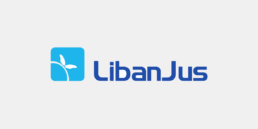
LIBANJUS
Did you know?
LibanJus’s solar plant of an annual production of 1,258 MWh is one of the biggest in industry in Lebanon?
What is the innovation?
LibanJus was the first factory in Lebanon to make use of solar energy with the initial phase of 135 kilowatt peak (KWp) executed in partnership with the UNDP and partially funded by the EU. The remaining phases were funded by LibanJus while benefiting from Green loans. As of two months ago, LibanJus has 920 KWp of solar panels installed.
LibanJus’s solar panels stretch across the factory’s roofs and cover an area of 6,000 meter squared. The factory runs of 50 percent green energy.
It took LibanJus a year of engineering to be able to override the problem of Lebanon’s electricity cuts which are not conducive to large scale solar plants.
What’s the story behind the innovation?
LibanJus had been following the development of solar energy and green energy in businesses with earnest waiting for the opportunity to come on board. As soon as it became feasible financially, they initiated the roll out of solar energy in their factory.Why is it important?
From the corporate social responsibility sense, LibanJus is demonstrating its respect of the environment and its natural resources.
From the business sense, and although it was an investment, its payback is that it reduces the factory’s energy bills. They will be able to recoup the investment with the free energy they are saving.What is the impact on the community?
Through their solar power plant, LibanJus is saving 890 tons of CO2 every year. Lebanon’s natural environment is benefitting from the reduction of harmful factory emissions typically generated by fuel.
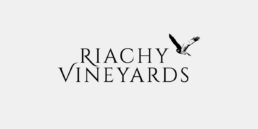
RIACHY VINEYARDS
Did you know?
Although wine grapes in Lebanon are traditionally planted on low altitudes such as the Bekaa Valley and coastal areas, it is still possible to produce great tasting wines from vineyards at very high altitudes?
What is the innovation?
Riachy Vineyards introduced a selection of cool climate Lebanese wines produced at high-latitude regions that are prone to high climatic variability (the vintage effect).
Located at 1600 meters of altitude in Mount-Lebanon,RV grapes mature
slowly during the mountainous colder nights and milder diurnal temperatures. This yields to a late season harvest which allows RV wines to slowly unfold their unique character.
What’s the story behind the innovation?
Imad Riachy, a fourth generation winemaker chose to create fine wines at high-latitudes merging classic values and time honored traditions with the latest technology in winemaking. His choice of altitude challenged the general belief that noble grapes such as Chardonnay, Pinot Noir and Cabernet Sauvignon cannot yield fine wines unless grown in the traditional regions such as the Bekaa Valley and coastal areas.Why is it important?
RV added varietal diversity and richness to the Lebanese winemaking industry as noble grape varieties grown at high-latitudes yield wines with natural acidity and medium alcohol content while grapes grown in the hot and harsh climates of the traditional regions tend to produce wines with high alcohol content and low natural acidity. Cool climate wines further reveal their varietal character along with being fresh and enjoyable to drink.What is the impact on the community?
Planting vineyards is an expensive long-term commitment as newly planted vineyards need up to four years to produce a harvest. With Riachy Vineyard emerging as one of Mount Lebanon’s promising sustainable winemakers, it is contributing in preserving agricultural land, creating employment and new market opportunities thus revitalizing rural communities. Wine and grapes support a broad network of related industries, reflecting the high value added impact of these products.
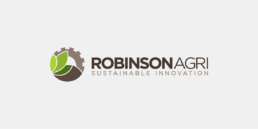
ROBINSON AGRI
Did you know?
Because of Robinson Agri’s import of one cut lettuce seeds, it now takes just one knife stroke to get a perfectly cut lettuce salad?
What is the innovation?
Robinson Agri works behind the scenes but it is very much involved in the value chain which leads to consumers enjoying a produce.
Robinson Agri is driven by their motto of sustainable innovation and by their commitment to improve life conditions which they see as part of their CSR. As an implementation of their motto and CSR, they are introducing new techniques to the agricultural sector and enabling innovation.
They adopted a new technique in agriculture called grafting to improve the vigor of the vegetable plants and their yield and reduce the use of pesticides.
Robinson Agri also implemented smart irrigation solutions in agriculture to decrease water consumption while increasing production of fruits and vegetables and boosting quality and uniformity.
With the one cut lettuce that Robinson Agri introduced, less water is used to clean the lettuce; time is saved with minimum food waste – which is very important in the hospitality business.
What’s the story behind the innovation?
When one works with agriculture, they become attached to the land and its people. As such, Robinson Agri truly believes that Lebanon has an exceptional microclimate and land – it is no surprise that everyone always says Lebanon’s fruits and vegetables have a great taste – which needs to be supported. Supporting this sector means keeping up with innovations in agriculture and introducing new technologies and techniques because if that doesn’t happen, then Lebanon will be left behind.Why is it important?
Robinson Agri’s ultimate goal is the end consumers health because at the end, everybody is an end consumer when it comes to food. Eating fruits and vegetables with less pesticides is important for one’s health.Who will benefit from it?
All the agricultural value chain will benefit from it starting with the breeder of fruits and vegetables because they are selling their products. The agriculture company is benefitting through introducing new techniques while the farmer is improving his production and so is making more money. Supermarkets and restaurants are also reducing waste because of the better quality produce resulting from these innovations. Finally, the end consumer is eating healthy food. These innovations are also reducing food waste, waste water and energy.
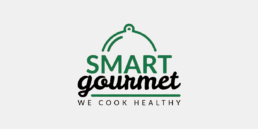
SMART GOURMET
Did you know?
You can pick up ready to eat fawaregh from the supermarket and enjoy it for up to a year of its production without ingesting any preservatives?
What is the innovation?
Smart Gourmet is producing a line of healthy and authentic Lebanese food that is rich in vitamins and is bacteria free. It has no preservatives and yet it has a one-year shelf life. They were the first in the world to develop this technology for extending the shelf life of food products without using preservatives through a cooking process and technique.
What’s the story behind the innovation?
Like all Lebanese, Jad Atallah, one of the founders of Smart Gourmet, takes pride in our local cuisine. Whenever he was abroad on one of his many trips, he would invite his friends to Lebanese restaurants and be disappointed in the quality of food served. At the same time, his wife who has a restaurant in Jbeil was lamenting food waste in her line of work. This encouraged the duo started thinking of how to provide gourmet tasting Lebanese food that would last for a long time and not have to be thrown away. As such, Jad’s wife and his partner, Charbel Kyrellos, a well-known executive chef (and works with Jad’s wife in the Jbeil restaurant) began experimenting with cooking techniques which would achieve long lasting ready to eat foods with no preservatives. Jad used his background in technology to help them develop the machine that is the basis of the cooking technique.Why is it important?
Because of their vacuum style cooking technique, Smart Gourmet is able to produces read to eat meals which are healthy in that only one third the amount of salt used in conventional cooking techniques is used. Their technique also preserves the food’s vitamins and eliminates bacteria as everything is cooked at over 70 degrees Celsius. When Smart Gourmet reaches a 100 products, it will launch an online shop. This would add to its convenience since consumers would be able to order their meals for the month online, keep them in their fridge and heat them when needed- thereby eliminating the time spent cooking while still obtaining a nutritious meal with no preservatives.How does it impact the community?
Consumers are enjoying healthy gourmet food which can be shipped worldwide because of their long shelf life without sacrificing quality or taste.

TEKNOLOGIX
Did you know?
Food and Beverage processing machinery can themselves generate reports on their status, diminishing top management’s reliance on manual data entry (which may be biased or inaccurate) to drive decisions on cost cutting, for example?
What is the innovation?
Teknologix has developed a software solution applied on food and beverage processing machinery (since this is the most prevalent industry in Lebanon) which automates the generation of machinery related data reports. Teknologix’s software solution programs the machinery in a way that they process the raw data stored within them into useful reports which can be analyzed by the business owners.
What’s the story behind the innovation?
Teknologix was originally established in 2008 as an automation solution provider which specialized in overhauling factory machineries and updating their systems. This line of work allowed them to become familiar with many F&B factories in Lebanon where they noticed a lack of transparency between top floor (management) and shop floor (factory part) when it comes to manually generated reports.
Teknologix then identified a need for a standard and automated solution that would facilitate the workflow for business owners and decision makers and ensure that they have transparent reports from the fields.Why is this important?
The Food and Beverage processing industry in Lebanon has become very competitive and profit margins in it have become very tight. Traditionally, when faced with such a situation, and because they were unable to accurately identify more efficient solutions, top management would reduce the number of their employees or compromise on the quality of their products. With Teknologix’s software solution, these business owners now have a competitive edge in that they can pinpoint areas of loss within their production process and work towards minimizing it. Time was identified as the biggest loss contributing factor and as such the software helps management with time loss reduction by identifying malfunctioning or inefficient machinery which are consuming extra time.
This innovation also contributes to the reduction of energy consumption in factories through its water consumption reports which allow for pinpointing water waste and fixing it thereby reducing cost and also positively impacting the environment.Who is benefitting?
The key benefit is for the manufacturer who is getting unbiased reports. Through these unbiased reports he or she can carry out a root cause analysis and identify the cause of the company’s loss which in turn allows him or her to properly distribute resources and optimize them.

THE GOOD THYMES
Did you know?
The classic mix is the number one bestseller within The Good Thymes portfolio despite it being the most traditional among the brand’s ten zaatar mixes?
What is the innovation?
The Good Thymes took zaatar, the ingredient that every Lebanese knows and loves, and developed a brand and a story around it. Moving beyond this, The Good Thymes developed ten mixes of zaatar, including spicy zaatar, fruity zaatar or zaatar with keshk. As such, it transformed zaatar into a unique product. The Good Thymes has also developed an herbal infusion based on zaatar.
What’s the story behind the innovation?
The founder of The Good Thymes, Fady Aziz, wanted to get away from the daily routine and was looking to reconnect with nature and his hometown of Kfar Houneh, in South Lebanon. He decided to revive an abandoned land he had always loved in Kfar Houneh to develop a project on but didn’t have an idea what to do there yet.
The idea of planting zaatar on that land came to him when he was preparing a zaatar sandwich for his daughter who adores zaatar and realized how much this mix was a part of his family’s daily routine.Why is it important?
Although Zaatar is the smell of Lebanon and is heavily associated with home among almost all Lebanese, no matter where they live, it was not given its proper value. While there are several well-presented brands of Lebanese sweets or nuts-which travelers can easily take with them aboard- this was not the case for zaatar.
As such, Fady used his skills in design and marketing to transform the humble zaatar into something Lebanese can be proud of and which can achieve universal success.
Today, The Good Thymes is getting requests from all over the world which is an indicator that it is a successful brand.What is the impact on the community?
End users are enjoying a high quality zaatar and sumac mix.
The Good Thymes is also providing the relatively younger and more daring generation- those below 50 years old- with new expressions of the beloved zaatar mix with the superfoodie mix being the second best seller.
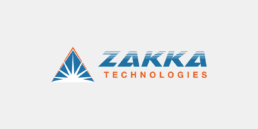
ZAKKA TECHNOLOGIES
Did you know?
There are filling machines that don’t use any electricity or air?
What is the innovation?
Zakka Technologies provides alternative solutions for industrial needs. They pride themselves on their flexibility with their customers, providing them with numerous options and solutions, as well as their fast response.
For example, Zakka Technologies has a new generation of industrial printers (used to label expiry and production dates on packages) which uses HP technology with cartridges. This means that unlike conventional industrial printers, it uses much less consumables like inks or solvents, requires little to no service or maintenance and is more compact.
Another example is a filling machine that requires no electricity and no compressed air. It is semi-automated and thus ideal for medium size operations.
Zakka technologies also provides top quality fully automated filling, capping and labeling lines as well as packaging machines for various application, powder and viscous product filling machines all of which make use of the latest technologies and energy conservation developments.
Why is it important?
Zakka Technologies offers modern machinery with an outstanding quality-price ratio, while their running cost is much lower than conventional ones so the customer is ultimately saving money.
For each application, Zakka Technologies has the knowhow and network of suppliers and technical team to provide their customers with the solutions for their specific application. This is a big advantage over customers purchasing their own machinery since the negotiation with suppliers, the installation and the after service is part of Zakka Technologies’ domain.
Purchasing industrial machines from Zakka Technologies versus independently is also more time efficient for customers since they don’t have to go through the process of identifying the best machine for their needs by themselves.Who does it benefit?
Customers are getting modern machines that have a low running cost.
Zakka Technologies machines have environmentally friendly features such as the printer that uses less consumables or the filling machine that runs without electricity thus conserving energy.
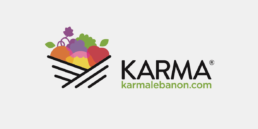
KARMA LEBANON SAL
Did you know?
A bundle of parsley which is picked in Lebanon in the morning can be enjoyed in Dubai in the evening on the same day?
What’s the innovation?
Karma’s innovation is in its business model which added value to the fresh produce export business in several ways. First of all, they shortened the supply chain by procuring produce directly from the farmers and selling them directly to the retailers.
Then, they reduced transit time shipping their produce by air instead of land or sea freight. To improve the process even further, they partnered with DHL International which offered them exclusive cold storage at Beirut RH Airport, made accessible dedicated customs clearance and launched scheduled flights of DHL’s own cargo planes to transport Karma’s produce faster and more efficiently than regular commercial flights.
What’s the story behind the innovation?
For many years, Khaled Sinno, founder of Karma, ran the produce section of his family’s supermarket business. Exports started with trial shipments to customers in the Gulf and Europe and started picking up gradually until it outgrew supermarket retail, which was later phased out.
Owing to experience accumulated in years of dealing with retail customers, the business plan was totally consumer-centric and focused delivering a unique customer end-user experience. Hence, the only way to add value and consistently deliver products that responded to the ultimate tests of freshness, durability and taste, was to modify and improve the existing supply chain.
Historically, Lebanese fruits and vegetables reaching export markets were not of premium quality. The main reason was the long supply chain which firstly demanded lower farm prices thus pushing the lowest quality produce through the export pipeline, and secondly asked for high retail prices to make it worthwhile for all those in the middle. And because transport was done by road or sea, produce arriving to export destinations after a long journey was tasteless, flavorless and did not last long.
As such, Karma worked on an innovative business model to resolve these issues.Why is it important?
An expedited and consistent process means first and foremost a satisfied end-consumer who enjoys really fresh produce and always comes back for more.Who does it benefit?
A shorter supply chain means fresh produce is sold at a reasonable price tag and not a prohibitive one. It also allows the farmer to sell produce at higher prices and profits and expand his business accordingly.
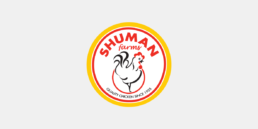
SHUMAN
Did you know?
Shuman Farms has optimized the quality of its feed to make it more efficient?
What is the innovation?
Shuman Farms’ innovation is in improving feed efficiency. They developed a feed evaluation system with research centers in Europe through which they optimize the technical performance of the chicken.
Health and management systems are constantly changing, and Shuman’s feed evaluation system is changing along as well.
This system is the product of an ongoing Research and Innovation Program which was also developed by Shuman Farms and which has a mission to stay up to date on the latest techniques and research relating to poultry.
What is the story behind the innovation?
Shuman Farms prides itself on staying up to date on the latest innovations and techniques when it comes to chicken and is therefore always researching ways to improve feed efficiency which in turn would lead to better quality chicken and a sustainable animal feeding.Why is it important?
The feed Shuman Farms produces has the right nutritional value to insure good growth, healthy chicken, and improve the results of the farmer. Through more efficient feed, the farmer will have better quality chicken at a lower cost.
The consumer will enjoy tastier and healthier chicken that has high measures of food safety.Who does it benefit?
Shuman Farms’ Research and Innovation Program goes beyond its primary focus on sustainability and optimal performance.
It focuses on animal health and welfare by replacing antibiotics with essential oils and plant remedies. Shuman Farms focus also on animal wellbeing.
The program benefits the environment in that it researches and tries to minimize the impact of animal production on the environment by the reduction of waste for example.
The improved feed efficiency is in itself beneficial to the environment as well in that fewer natural resources are needed.
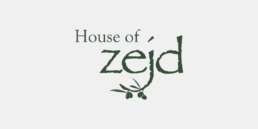
ZEJD
Did you know?
By just a zap of a QR code, a consumer can learn everything about a purchased olive oil including the the plot of land it originates from, the variety of the olive tree, when it was harvested, etc?
What’s the innovation?
With a startup called Rigino, Zejd will be utilizing a production and traceability software to be able to efficiently trace any product from the shelf back to its raw material.
Youssef Fares, founder of Zejd, hopes that with time, this software will be developed on blockchain technology meaning that each part of the production chain will independently enter their data. He is also planning on eventually using the Internet of Things to optimize the production line.
What’s the story behind the innovation?
Zejd had obtained the ISO 22000 certificate which necessitates them to have traceability of products – meaning being able to trace back their product to find out, for example, which tank they came from. Right now, all information is recorded manually which Youssef says takes a lot of time and is labor intensive, especially when going back to identify a problem if needed.
So, Youssef was looking for someone that would develop a production and traceability software for him. Through Agrytech, he met Rigino, a startup currently in Phase 3 of Berytech’s agri-goof accelerator, which is working on traceability. Zejd and Rigino signed an agreement stating that Rigino will be developing this software for the olive oil business and Zejd will be the first brand to use it.Why is it important?
Such software facilitates Zejd’s work at a managerial level and also when it comes to interactions with their dealers abroad or locally who will be able to use the lot number to get all the information they need.
Having a real software will reduce errors and be a more efficient system of traceability for Zejd, the consumer and the dealer who will all be more assured of quality.What is the impact on the community?
There is a problem with traceability in the olive oil business in Lebanon. If it is done on block chain and a lot of awareness is raised about the QR Code on the product and the blockchain technology that guarantees the truth of the information this might be a way to assure the consumer that olive oil in Lebanon can be trusted especially since the software is scalable across the sector.This will eventually impact the farmer as Zejd would be able to sell the oil at the higher price hence paying farmers more for their raw material.
JOIN US & BE PART OF THE AGRI-FOOD REVOLUTION
We’re all attending to share our ideas, to hear feedback, to put things in motion and to be part of the agri-food revolution. Join us and don’t forget to use the promo code AFID2019 to get 50% off 2 Careem rides, to and from the event. See you there!
MORE ABOUT THE EVENT
As a member of the Global Compact Network Lebanon, Berytech enacts the 10 principles of the UNGC. This event is organized as part of Berytech’s mission to promote the agri-food sector in Lebanon and its commitment to applying the following Sustainable Development Goals:
This event is organized with the unwavering support of the Kingdom of the Netherlands and under the patronage of His Excellency Mr. Saad Hariri. We also thank the following sponsors and supporters:
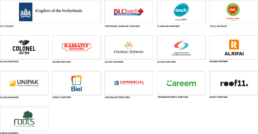
Berytech © 2019 | LEBANON AGRI-FOOD INNOVATION DAY 2019
